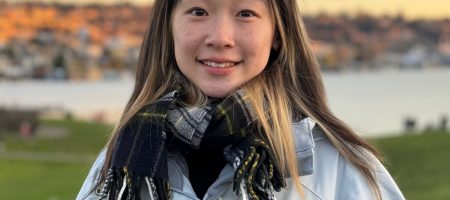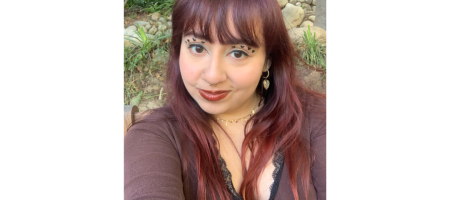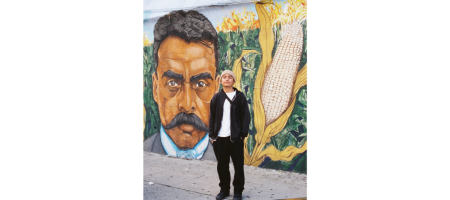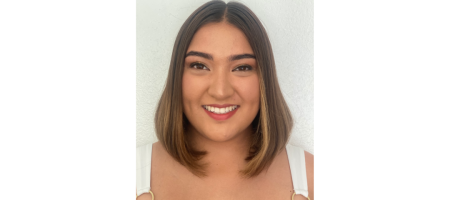Student Spotlight – Sihui Lin
Meet UCLA undergraduate researcher Sihui Lin!
Sihui majors in Architectural Studies, Statistics and Data Science with a minor in Digital Humanities. She is a researcher in our Undergraduate Research Scholars Program (URSP)! Her research project is titled “From First to Fine: Facsimile, Fine Printing, and Cultural Patronage in William Andrews Clark Jr.’s Christmas Gift Books.”
How did you first get interested in your research project?
I first became interested in book studies through an English capstone seminar on libraries and special collections, where I had the opportunity to work directly with archival materials—from 17th-century booksellers’ catalogs to 20th-century fine printing masterpieces. I found it incredibly inspiring to explore UCLA’s vast library resources, which span diverse cultures and histories. While searching for compelling books to work on, I came across an article about the Clark Library’s history written by Lawrence Clark Powell, after whom Powell Library is named. The series of Christmas gift books published by William Andrews Clark, Jr. immediately caught my attention due to their distinctive format and cultural significance. I feel deeply grateful and honored to have the opportunity to explore UCLA’s own collections.
What has been the most exciting aspect of your research so far?
One of the most exciting parts of my research has been the opportunity to work directly with rare materials at the Clark Library and Library Special Collections. I am always captivated by the experience of handling fine printing books—turning pages made from handmade paper, noticing the intricate details of their craftsmanship, and spotting delicate watermarks that reflect the meticulous care put into their creation. It is a tangible connection to the past that feels almost magical. Beyond the materials themselves, the staff at both libraries have been incredibly supportive, sharing insights about their collections and helping me uncover hidden treasures.
What has surprised you about your research or the research process?
Working with archival materials has been full of surprises, and that’s part of what makes it so exciting for me. There’s something thrilling about diving into boxes of primary sources—whether it’s thank-you notes, newspaper clippings, or handwritten letters—without always knowing exactly where they will lead or what argument might emerge. Sometimes these materials align perfectly with secondary sources, but other times they challenge or even contradict existing narratives, which can completely reshape my understanding of the past. It is in those moments of discovery that I really feel the power of research—being able to piece together a more nuanced, comprehensive picture of history. It is surprising and unpredictable, but that is what keeps it so engaging.
What is one piece of advice you have for other UCLA students thinking about doing research?
I recommend exploring the excellent resources available at UCLA’s libraries! They offer extensive catalogs curated by experts across various fields. Plus, subject librarians are highly knowledgeable in their respective areas, so be sure to take advantage of their expertise!
What effect do you hope your research has in your field, at UCLA, in your community, or in the world?
Through my research, I hope to uncover the stories behind the treasures held in UCLA’s libraries and explore how private printing has shaped Los Angeles’s cultural landscape. While fine printing might seem like a niche field with little direct impact on daily life, it reveals fascinating narratives about cultural capital, craftsmanship, and the values of the past. By bringing these stories to light, I aim to help others appreciate the artistry and history behind these works—things that are often overlooked or taken for granted.






